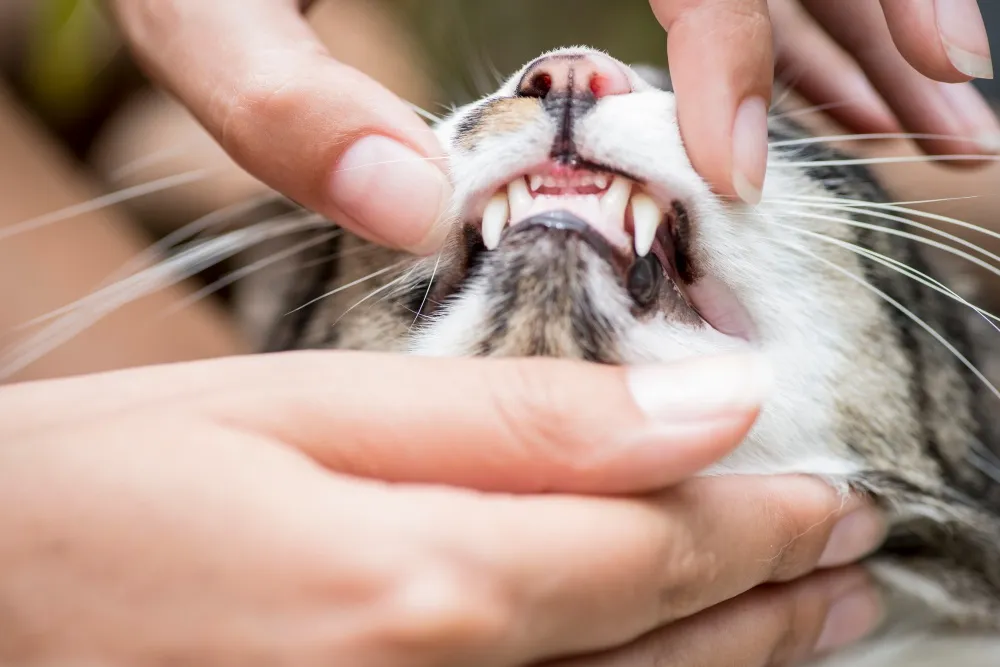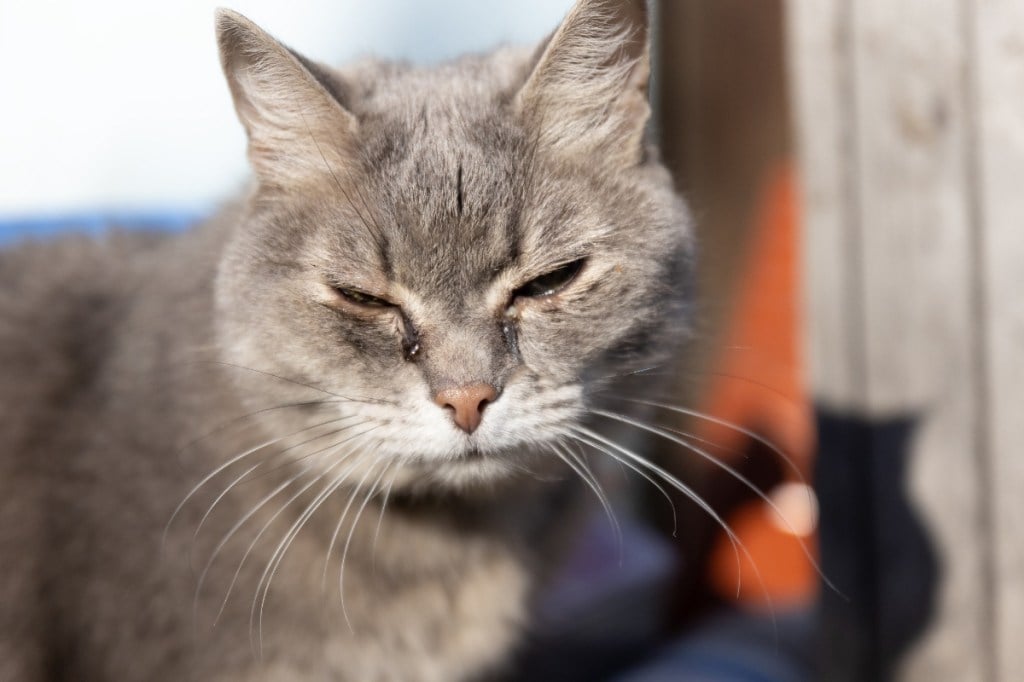Table of Contents
Is your cat 1 month old or 3 months old? Five years old or 8 years old? If you’re not sure, you’re not alone. Many pet parents are not 100% sure of their cat’s age.
Determining a cat’s age takes a lot of experience and is best left to veterinarians. However, every cat develops and ages differently, depending on their genetics and lifestyle. Thus, a cat’s age is often an educated guess at best.
Veterinarians often use teeth development and wear & tear, developmental milestones, and health status to help them make that educated guess. This article will walk you through how a cat’s age can be estimated.
Teeth
Analyzing the teeth is a very common method used to determine a cat’s age. Teeth development helps determine a kitten’s age, while teeth wear & tear can estimate an adult cat’s age.
 First 8 weeks of life: Baby teeth are coming in. Baby incisors and canines are in by 4 weeks, and baby premolars are in by about 6 weeks. By 8 weeks, a kitten has all of its baby teeth.
First 8 weeks of life: Baby teeth are coming in. Baby incisors and canines are in by 4 weeks, and baby premolars are in by about 6 weeks. By 8 weeks, a kitten has all of its baby teeth.
3.5 to 6 months: The permanent teeth start coming in at about 3.5 to 4 months, with all permanent teeth in by 6 months.
1 year: Teeth are still white and clean.
1 to 5 years: Tartar buildup starts. Signs of wear & tear become apparent.
5 to 10 years: The gums can start to look red and swollen, indicating dental disease.
Beyond 10 years: Serious dental disease can develop. Heavy tartar buildup is noticeable, and teeth may fall out.
Looks can be deceiving, though. For example, a young cat with poor dental care can develop serious dental disease. In contrast, an older cat with excellent dental care may have the teeth of a much younger cat. Once cats reach adulthood, teeth become a much less reliable determinant of age.
Development and Behavior
Like human babies, kittens demonstrate certain behaviors and developmental milestones at specific time points:
Birth to 3 weeks: During week 1, kittens will primarily suckle, sleep, and root around their mother. After week 1, they open their eyes and start moving around.
3 to 8 weeks: Kittens engage more with their environment and gradually become more coordinated.
8 to 16 weeks: Kittens play, grow, and explore their environment even more.
16 weeks to 7 months: Kittens increase their confidence and assertiveness and are much more coordinated.
7 to 18 months: Kittens reach their adult size and move through adolescence to adulthood.
As a rule of thumb, a kitten’s weight will increase by 1 pound/month, up to about 6 months. However, for kittens who have poor health and aren’t gaining enough weight, weight is not a good way to estimate age.
Once kittens become adults, estimating age is based more on behavior and health status:
Young adult (18 months to 3 years): Cats are typically in excellent health. However, mild dental disease and excess weight gain may begin.
Adult (3 to 7 years): These are a cat’s prime years of life. Cats usually have ample energy and few health problems, other than possible dental disease.
Middle-age adult (7 to 14 years): Serious health problems, such as kidney or thyroid disease, can start developing, along with physical signs of aging. For example, the coat might become duller, and a cat’s eyes might look a little cloudy (without affecting vision). Also, cats might develop arthritis due to wear & tear on their joints, making grooming more difficult.
Elderly (beyond 14 years): Health and overall appearance can start to decline. The teeth can fall out due to severe dental disease. Progressive arthritis can significantly affect mobility. The coat can become painfully matted. Chronic kidney disease can make an elderly cat quite ill. Cancer might develop.
As with teeth, behavior and health status aren’t foolproof ways to estimate a cat’s age. For example, a cat who lives on the streets and fights for its survival will age much more quickly than the typical housecat. Also, breed-specific diseases can develop early in life, well before the middle-age or elderly years.
Bringing it Together
A cat’s age is often, at best, an estimation based on their teeth, development and behavior, and overall health. If you’re wondering how old your cat is, take them to your veterinarian. Regardless of your cat’s age, remain focused on giving your cat all of the love, care, and attention they deserve.






